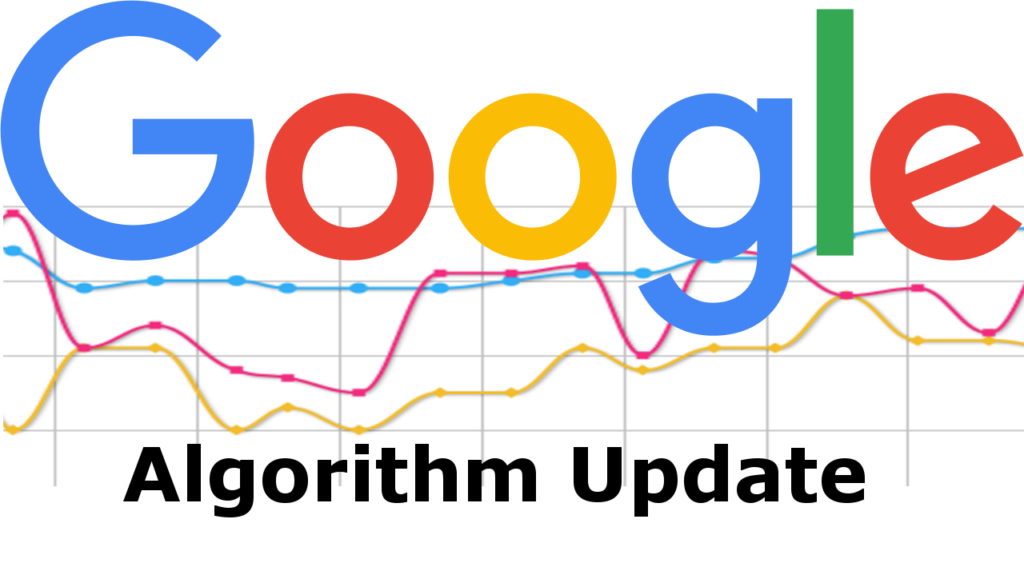What Makes Us Different?

What Makes Us Different? We know that there are lots of Digital Marketing agencies out there, but what makes us different? Some are good. Some, not so good. We also know that choosing a company to trust an important part of your business with is difficult – especially when it’s something as crucial as helping promote your website, business products & services to the Search Engines… So, why should you choose to work with us over the many other social media companies out there? Here are just some of the more obvious reasons we could think of… 1. We have been at this a long time. We actually started working in SEO and Digital Marketing in 2001. Our first client at this time was a company called Easy Seal UK Roofing, who we still work with. We know what works, and we know what needs to happen to KEEP it working. 2. We’re a ‘dependable & reputable’ company. Unlike many of our competitors, we are a registered limited company in the UK. For you, this means more trust, more protection, and more security. 3. Technology. At every opportunity, we use technology to both improve our service, and make time and cost savings that we can pass on to our customers. This is why we can offer such a high level of service at such a low relative cost. 4. We’re a small team. With us, every member of our team will have an in-depth knowledge of your project and business. Believe us, that makes a difference. 5. Value. Our services are affordable & scalable, helping clients harness the power of digital marketing at highly competitive rates. The truth is, we could charge a lot more for our services. We do pay attention to our competitors (you may have looked at a few of them), and we can see many charging two or three times what we do for an identical service. Instead of charging more, having fewer customers and our customers always questioning the value of what we do, we prefer to offer a great service at a great price. To us, this makes far more sense. 6. Transparency. Have you looked at other agencies? After looking at their websites and services on offer, did you feel that you had a clear grasp of exactly what they would do for you, and exactly what it would cost? 7. We over deliver. Every single one of our services / packages includes many things that we don’t even mention. These are just little surprises that, when you start working with us. All designed to help YOUR project succeed. 8. We care. Easy to say, we know. However, we really do. We’ve been in business long enough to know that running any sort of business is tough. We know the challenges business owners face, and we do everything we can to help. We invest in every business we work with. After all, if your business goes from strength to strength – you’re going to keep working with us, right? It’s this approach that has led to us working with many of our customers for years. That should have got your interest if you are genuinely looking for a Digital Marketing agency to help your business grow. Direct Submit are a UK based digital marketing agency that specialises in all thing’s SEO. Set up in 2001, we have been continually adjusting and tweaking our proprietary SEO strategies, which has made us leaders in our industry. So if you feel it’s time to transform your business and generate more traffic and more business opportunities then contact us today on 0845 2722350 or visit our Digital Marketing Services website. With offices in both Durham and Newcastle, we can help you do just that through Digital Marketing and Search Engine Optimisation (SEO).
Google URLs Under 1000 Characters

Google URLs Under 1000 Characters Google’s John Mueller Recommends Keeping URLs Under 1,000 Characters. This number was mentioned in a Google Webmaster Central hangout during a discussion about URL length as it relates to SEO. While it’s uncommon for URLs to reach, much less exceed, 1,000 characters, it’s not impossible. Various factors such as parameters and sub-folders can greatly expand the length of a URL. At what point does URL length start to impact SEO? Well it turns out you likely don’t have to worry about URL length until you’re approaching the 1,000 character mark. In other words, you have plenty of room to work with. With that said, it’s generally recommended to keep URLs short and avoid making them any longer than they need to be. Note that web browsers can handle URLs up to 2,000 characters in length, which is what makes Google’s limitation of 1,000 characters particularly noteworthy. In fairness, Mueller may have been throwing an arbitrary number out there, but he brought up this number once before. Back in 2009, in a reply to a thread in the Google help forums, Mueller stated: “We can certainly crawl and index URLs over 1000 characters long — but that doesn’t mean that it’s a good practice :-).” So, there it is. Keep URLs short, but don’t stress about it if they get a little long. As long as they’re under 1,000 characters. Listen to Mueller’s full statement in this video, starting at the 42:39 mark. Worried about your SEO Rankings? Worried about your SEO rankings? We can provide you with a detailed SEO Audit Report so you can discover what’s preventing you from getting the rankings you need, and unlock the potential for increased traffic and more business from the Internet. Our audit reports contain over 50+ SEO signals and determine how optimised a web page is for a target keyword.
FREE SEO Audit for your Business

As a leading SEO & Digital Marketing Agency, we start campaigns with a technical audit of your website, to make sure it’s built to the latest web standards. If not, it is likely to be penalised by search engines. We can help correct this for you, to make sure your SEO campaign is as effective as it can be when it starts. From our offices in Durham and Newcastle, we then use the latest SEO tools to research the market place and estimate potential traffic volumes, as well as your current market share and the relative competitiveness of key phrases. Right now Direct Submit are offering a FREE SEO Audit for your website against a chosen key phrase. We can provide you with a detailed SEO Audit Report so you can discover what’s preventing you from getting the rankings you need, and unlock the potential for increased traffic and more business from the Internet. An SEO audit is a way of reporting on how and why a website is not ranking as well as it should do in search engine ranking pages (SERPs). A full SEO audit can be broken down into several topics, from technical issues to link building problems: >> Technical SEO audit >> SEO copy analysis and audit >> SEO link building audit >> Social SEO audit >> Mobile SEO audit >> Domain analysis Get your FREE SEO Audit for your Business Enter your URL, email and target key phrase and we’ll send you your report with in-depth analysis and recommendations. Our audit reports contain over 50+ SEO signals and determine how optimised a web page is for a target keyword. We are an SEO audit agency who have experience in providing feedback on all types of websites on all types of content management systems. Whether you are a local business in the North East struggling to build traction, or running an ecommerce business which has stagnated, we can help you find your feet again. We support business in Durham, Newcastle, Northumberland, the North Est and indeed all across the UK. Here at Direct Submit, our team of SEO experts will create a bespoke results-driven strategy to improve your SEO and help to boost your conversions. Ultimately, our SEO services are designed to drive qualified website traffic and leads to your business. Call today on 0845 2722350 or visit our Digital Marketing Services website.
How We Implement SEO!

How We Implement SEO! Step 1. Research Keyword Research – Our strategic keyword research process derive the right keywords that drive massive traffic to your site. Building Content Strategy – Content is the heart of our SEO campaign. We devise a brand-centric content strategy that will propel your growth. Backlinks Strategy – Contrary to age-old practices, we follow highly effectual backlinks strategies that pull huge traffic and build brand reputation. Step 2. Action On-Page SEO – By creating an all-inclusive On-page SEO report, we make sure your website is ready to top the search engines. Off-Page SEO – Our off-page optimisation services improve search results for the website and help you stand tall and proud among competitors. SEO Oriented Content – We produce par excellent SEO oriented content that engrosses and educate the users and improve ranking as well. Social Media Marketing – We use social networking sites to market your business and grab the attention of users. Step 3. Monitoring Traffic Monitoring – We meticulously monitor the website traffic and deploy strategies on a timely basis to get the most out of your investment. Website Rankings – Relentless monitoring of website rankings help us to analyse the performance smoothly. Backlinks Analysis – We do deep backlinks analysis to evaluate what content is directing the maximum traffic. Deep Analysis – We use state of the art tools to check and improve website visibility. W3era analyse and optimise your website performance extraordinarily. At Direct Submit, our Digital Marketing team will work to develop an effective SEO campaign that includes- research, evaluation and other imperative steps to deliver favourable outputs for your business. Our services are affordable & scalable, helping clients harness the power of digital marketing at highly competitive rates. Our flexible solutions help brands nurture relationships with customers and drives sales fast. Why Choose Direct Submit SEO Services? We believe every business is unique and we deliver a range of SEO services designed to help ensure the optimum performance of your website. Our proven & effective SEO will help your company’s website increase its organic search ranking in ALL the major search engines. Call us today on 0845 267 2350 and get your website working harder for you.
Targeting Keywords with Low Search Volume

Targeting Keywords with Low Search Volume Are low volume keywords a waste of time? Here’s why you may want to target under 100 volume keywords to generate targeted traffic and more leads for your website. The ultimate goldmine for an SEO expert is finding a high-volume, high-converting, low-competition keyword. What could be better than an influx of organic traffic that’s itching to buy what you have to offer? These keywords tend to be the “sweet spot” – a high number of searches with low competition – so they’re often the priority when SEOs conduct their keyword research. Because of this, low volume keywords (those below 250 searches per month) often get overlooked. But could SEOs be missing out on organic traffic and leads by disregarding low volume keywords? This guide uncovers the high value that could be hiding behind these low search volume terms (and how to incorporate them into your SEO strategy). The value of Targeting Keywords with Low Search Volume Low volume keywords often give you a unique opportunity to target terms that are highly relevant to your audience – ones that your competitors aren’t likely targeting at all. While you may not see an influx of thousands of new users per month, you do know that you’ll have a good chance of ranking for that term and converting that small number of users into customers. Main Benefits of Targeting Low Volume Keywords The value of targeting low volume keywords goes far beyond just being able to get ahead of your competitors or driving a little more traffic. Here are some other benefits of incorporating these terms into your SEO strategy: > Super relevant – Long-tail keywords are typically low-volume keywords that are super relevant to your target audience. The more relevant the content, the more likely users are to convert. > Build interest – Low volume keywords can give you opportunities to build interest around a small or new niche. > Great ROI – Even the lowest volume keywords can drive conversions that offset the cost of the content itself. > Diversity – Your content can rank for a wide variety of low-volume keywords at once, multiplying your traffic potential. > Commercial intent – You can capitalize on those specific “buying” keywords that draw in users ready to buy your product or sign up to work with you. Going after low volume keywords isn’t always a waste of time or money. Before you skip them altogether, go through the tips above to see whether you have some gold mine opportunities. I suggest going after the low hanging fruit, targeting many keyword variations, and adequately assessing cost vs reward. You may find some unique keywords that will pay off both in terms of traffic and conversions.
Fueling Business Growth with Local SEO

Business Growth with Local SEO Local search is powerful for small businesses: four out of five consumers use search to find local information, which means if your business isn’t optimised for local search, you could be missing out on 80% of your potential customers. In short, local SEO is critical if you want your business to stay relevant. Local SEO helps businesses promote their products and services to local prospects and customers. To gather information for local search, search engines rely on signals such as local content, social profile pages, links, and citations to provide the most relevant local results to the user. To thrive in local search, you need to do three things: optimise your Google My Business account, improve your on-page SEO by updating your website, and excel in the Search Engines. While it might sound overwhelming, it’s entirely feasible to succeed in all three with some patience and perseverance. So how do we achieve this? Optimise for Google My Business Google My Business has become the creme de la creme of local search since Google understandably feels most comfortable sharing content it can support and verify. Google My Business is their tool to help your business meet Google’s needs. If Google can verify your business as authentic, it will potentially reward your business with a coveted sidebar space in Google local search. Website Updates Now that we’ve discussed optimizing your business for Google My Business, let’s take a look at five simple website updates to improve your local SEO. 1. Review your Internal Linking Structure Although external links pointing to your site are ideal, adjusting your internal linking structure will also help boost your SEO rankings. Why does internal linking matter? It does the following: Supports website navigation > Assists with information architecture and website hierarchy > Distributes page authority and ranking power among pages > If you want to improve your internal linking structure but aren’t sure where to start, check out Kissmetrics’ 2. Optimise URL, Title Tags, Headers, Meta Description, and Content When it comes to content, every new blog post is a new indexed page for your site, a new page on which to target a geographic search phrase, and a new opportunity to get found in the search engine results pages (SERPs). Every time you write a piece of content, you need to optimise the content for search engines by using high-volume keywords in the URL, title, header, meta description, and body. If you’re having trouble coming up with geo-targeted content, consider highlighting customer success stories and case studies. 3. Add Location Pages to your Website If you have more than one brick and mortar location, create location pages. Location pages provide readers with your NAP, store hours, unique store descriptions, parking/transit information, promotions, testimonials from happy customers, and more. It’s also important you avoid duplicating content across multiple location pages. For single location businesses, create a locally descriptive About Us page. You’ll get big time bonus points if you add a Google Map to your website on your respective location page(s). 4. Create Local Content Google continues to get smarter, which means content creators are now able to truly write for users, not search engines. But while writing about general topics will attract a wide crowd, sometimes it’s more important to hone your focus and write about local or industry news to attract a local audience. Be the local authority for your industry by promoting local industry gatherings, news, employees, and other educational content on your blog. Think of top-of-the-funnel content that goes beyond what your business sells. For example, if you’re a local security company and you’re trying to attract businesses that are new to the area, create a helpful resource to get these businesses well-acquainted with your city. A map of local service providers or a calendar of city-wide events could both provide value for your persona and contain highly relevant on-page local signals. 5. Ensure your website is mobile-friendly Local search and mobile search go hand in hand (nine out of ten smartphone users conduct local searches on their devices!). Some of the most common ways people will use your site in a mobile environment is to look up reviews, find directions to your location, and search for contact information. Make it easy for your prospects and customers by making your site mobile-friendly. If you are interested in pushing your business to local customers – Fueling Business Growth with Local SEO – then call Direct Submit today on 0845 2722350. Here at Direct Submit, our team of SEO experts will create a bespoke results-driven strategy to improve your SEO and help to boost your conversions. Ultimately, our SEO services are designed to drive qualified website traffic and leads to your business.
Importance of Link Building

The Importance of Link Building Link building is a process of collecting links from other websites. From the technical point of view, backlinks are hypertext links that serve as navigation among websites. The links are crawled by search engines. Search engines use links to explore new websites and to set the overall ranking of a website in SERP. In other words, they explore new content and determine the authority of a website based on the authority passed from external sources. This means that a website’s link profile remains one of the most valuable SEO ranking factors. When looking at the importance of link building for SEO purposes we can distinguish between external link building and internal link building. Internal link building means using a link pointing from one page to another page on the same domain. Types of backlinks Generally speaking, there are two types of backlinks: > Do follow (authority passing) > No follow Do follow backlinks pass the external source authority to the linked website. Imagine the backlink as a point that boosts SEO of the website, often called the “link juice”. No follow backlinks don’t score any points to the linked website. They don’t pass the external source authority because of the specific HTML tag that tells crawlers not to count it. Quality aspects of backlinks Google considers multiple quality aspects of the referring websites: > Domain Authority > Page Authority > Other link profile quality metrics Relevancy Links referring to a website have to be relevant to its content. Don’t acquire a backlink from a clothes e-shop if you write a blog about pizza. Link placement Links placed in the main articles or sections are better than links in footers and sidebars. Single links tend to be more valuable than sitewide links. Sitewide links appear on all pages of a website. They are usually in the footer, header, sidebar or blogrolls. Sitewide links are great both for internal and external link building. Importance of Link Building They can generate a lot of traffic. Don’t get scared by them but make sure to use only natural links and keep in mind that their SEO potential may be a bit lower when compared to single links. Besides the aspects mentioned above, we need to consider the freshness of the link, the anchor quality, popularity and social signals.
PayPal’s Ecommerce Solution

PayPal’s Ecommerce Solution is Rolling Out to All Businesses PayPal’s e-commerce platform, used by Instagram Shopping and Facebook Marketplace, is now available to businesses of all sizes. The ‘PayPal Commerce Platform’ is designed to give any business access to a customisable payment solution. Bill Ready, EVP and COO at PayPal, states in an announcement: “The PayPal Commerce Platform is designed to meet the specific needs of marketplaces, e-commerce solution providers, crowdfunding platforms and more by bringing together the most comprehensive set of technologies, tools, services, and financing for businesses of all sizes around the globe.” The PayPal Commerce Solution enables the following features: > Connect with over 277 million active users; > Directly accept more than 100 currencies; > Simplified compliance with local regulators in over 200 markets; > Advanced risk and fraud tools powered by AI and machine learning informed by trillions of transactions; Access to payment services such as mobile POS, business financing, and the ability to offer consumer credit for purchases. To sum everything up, the PayPal Ecommerce Solution platform gives any size business access to the same online payment capabilities as the largest online retailers. PayPal COO Bill Ready goes on to state: “We are at a moment in time where we can finally put the same tech and capabilities in the hands of all businesses regardless of size…That’s our goal. We want to help more businesses get started, grow, and thrive in today’s complex digital world. It’s that simple.” Starting today, the PayPal Commerce Platform is available in France, Germany, Italy, Spain, the United Kingdom, and the United States. The platform will expand to more than 40 markets by the end of the year.
Google Announces June 2019 Algorithm Update

Google Announces June 2019 Broad Core Algorithm Update Google officially announced a broad core update. The update is rolling out on Monday June 3rd, 2019. The announcement was made via the official Twitter account, Google SearchLiaison. This is Google’s official broad core update announcement on Sunday, June 2, 2019: “Sometimes, we make broad changes to our core algorithm. We inform about those because the actionable advice is that there is nothing in particular to “fix,” and we don’t want content owners to mistakenly try to change things that aren’t issues….” The reason they say there is nothing to fix is because core algorithm updates may not generally be about targeting specific kinds of low quality content but rather, about improving relevance. When you talk about content quality, you’re talking about spam. But showing users relevant results is about understanding search queries and understanding content than it is about excluding spam. In a general way, these kinds of updates are about improving how Google understands search queries, improving how Google understands web pages and bringing both sides together to provide more relevant search results. What to Do About June Broad Core Algorithm Update? Google’s official guidance is to do nothing. Many publishers and search marketing professionals may find that advice less than acceptable. But it is good advice. Here are some things to consider when reviewing the Google Announces June 2019 Algorithm Update: > Google’s official guidance is that there is nothing to fix. > Google Updates sometimes take a week to ten days to bounce around. So it’s best to wait before forming conclusions about what happened. > Google’s Broad Core Updates do not target specific niches. Google’s John Mueller confirmed that the badly-named “Medic” update was not targeting health related sites. That makes sense for a broad core algorithm update. The definition of broad is something that has a wide scope. Anyone who says a broad core update is targeting a niche is likely mistaken. > Google’s broad core updates can be said to be about relevance. Site quality always remains important. But it’s never been the sole focus of the algorithm. It’s important to keep in mind that this is a broad core algorithm update, not just a “site quality” update. When trying to figure out why your site is no longer ranking well, don’t approach it from the point of finding what to fix. Instead, it may be more helpful to ask yourself why your site might not be viewed by Google as relevant anymore. Sometimes it’s more productive to wonder less about what’s wrong with your site. It could be more productive to consider what’s more relevant about the sites that are ranking better.
The Robots.txt File?

What is a Robots.txt File? Robots.txt is a file that tells search engine spiders to not crawl certain pages or sections of a website. Most major search engines (including Google, Bing and Yahoo) recognize and honour Robots.txt requests. Why Is Robots.txt file Important? Most websites don’t need a robots.txt file. That’s because Google can usually find and index all of the important pages on your site. Plus they’ll automatically NOT index pages that aren’t important or duplicate versions of other pages. That said, there are 3 main reasons that you’d want to use a robots.txt file. Block Non-Public Pages: Sometimes you have pages on your site that you don’t want indexed. For example, you might have a staging version of a page. Or a login page. These pages need to exist. But you don’t want random people landing on them. This is a case where you’d use robots.txt to block these pages from search engine crawlers and bots. Maximize Crawl Budget: If you’re having a tough time getting all of your pages indexed, you might have a crawl budget problem. By blocking unimportant pages with robots.txt, Googlebot can spend more of your crawl budget on the pages that actually matter. Prevent Indexing of Resources: Using meta directives can work just as well as Robots.txt for preventing pages from getting indexed. However, meta directives don’t work well for multimedia resources, like PDFs and images. That’s where robots.txt comes into play. The robots.txt file lives at the root of your site. So, for site www.example.com, the robots.txt file lives at www.example.com/robots.txt. The bottom line? Robots.txt tells search engine spiders not to crawl specific pages on your website. This helpful guide from Google has more info the different rules you can use to block or allow bots from crawling different pages of your site.
